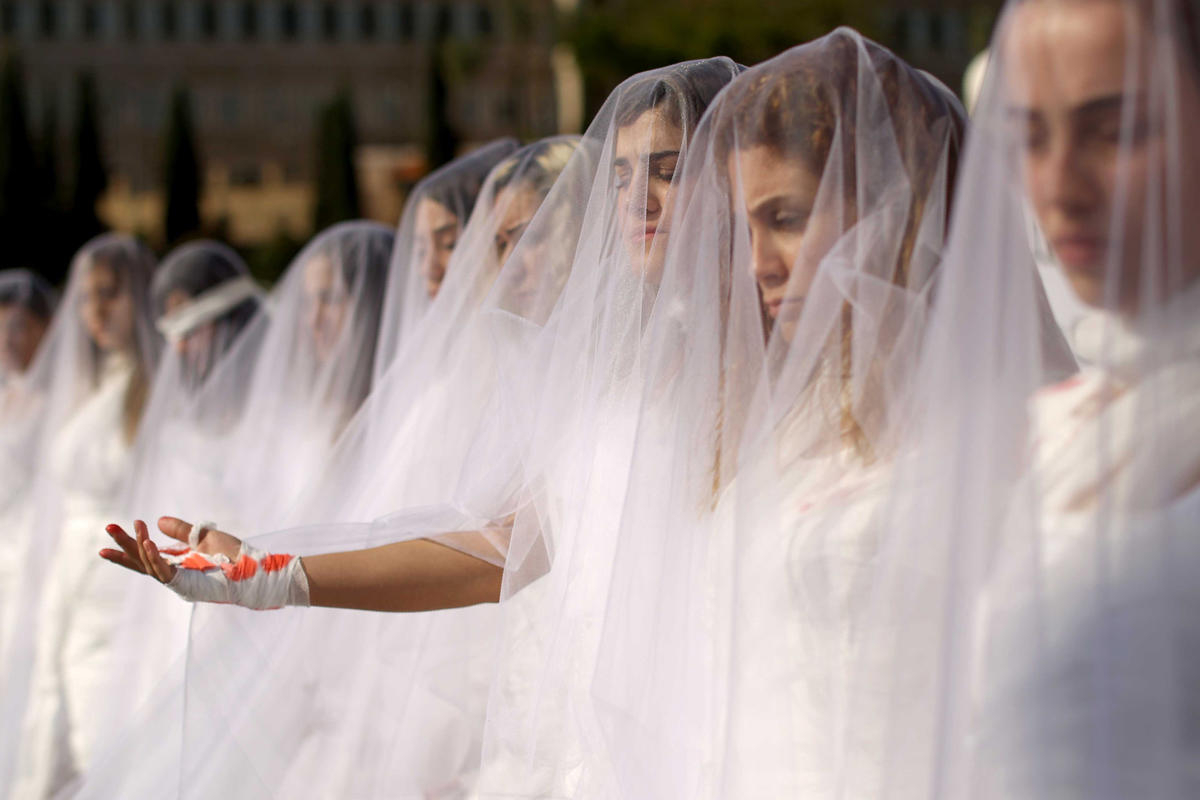Child, Not Bride
IWSAW experts weigh in on child marriage, its toll on girls and plans moving forward.
On the International Day of the Girl, which falls on October 11 of every year, child and gender-rights organizations focus on the danger of child marriage to vulnerable populations of girls across the world. This is work that LAU’s Institute for Women’s Studies in the Arab World (IWSAW), conducts year round, with research and outreach activities aimed at raising awareness of this form of violence against girls and ultimately reducing the number of child marriages in Lebanon.
It is not a small problem. According to a 2016 UNICEF study, six percent of young Lebanese women were married before turning 18. Among the refugee population in Lebanon, which is estimated to be as high as 1.5 million, up to a third of girls are married off before they turn 18, according to a 2017 UN Population Fund report.
But numbers do not illustrate the full picture. “We too easily speak of numbers, dollars and programs, though this is about people first – this is about girls first,” says IWSAW Director Lina Abirafeh, who has over 20 years of experience working on all forms of gender-based violence in countries around the world, including child marriage.
Abirafeh notes that while Lebanon has ratified the International Convention on the Rights of the Child, child marriage is not illegal here. Family matters in Lebanon are decided based on the law of the sect an individual belongs to, and efforts by activists and sympathetic politicians to reform personal status laws have been unsuccessful thus far.
IWSAW researcher and past LAU instructor Gabriella Nassif provides a brief illustration. “While some sects do have a minimum legal age of marriage, the law often defers to the permission of a parent or guardian, which can significantly lower the age of marriage,” she says.
Nassif explains that child marriage is a violation of girls’ bodily autonomy. “It goes without saying that if these young girls cannot legally consent to the marriage itself, then they cannot legally consent to intimate relations – sex. This puts them at a much higher risk of suffering sexual assault and physical violence at the hands of their partners.”
She adds that girls who get married are usually pulled out of school upon their nuptials and often begin having children, putting strain on their bodies, as they are still growing themselves. Without completing their education, these young girls face the risk of exploitation, malnutrition and other health issues, and a lack of knowledge and resources about raising their own infants. In fact, the vast majority of these girls come from families too poor to provide for them, which is often the main reason their guardians marry them off in the first place.
So what can be done to protect girls from being married off before they are adults? In 2014, IWSAW, in collaboration with the National Commission for Lebanese Women, organized an advocacy campaign called Protect Underage Girls from Early Marriage. IWSAW is also currently working with the Women’s Refugee Commission and Johns Hopkins University to complete a research project on child marriage among Syrian refugees in Lebanon. This will be one of the first prevalence studies on early and child marriage done in South Lebanon and will be published next year.
Advocates have also been shining a light on the problem through art. IWSAW held screenings in both Lebanon and New York of Nour, a film by LAU alumnus Khalil Dreyfus Zaarour about a teenager who is forced to marry an older man, ending her prospects for an education and independence.
Dr. Abirafeh takes pride in IWSAW’s work on child marriage and related topics such as gender-based violence and the now-successful efforts to repeal Article 522 of the Lebanese law, often referred to as the “marry your rapist law.”
“The rights of children – specifically the girl-child – are non-negotiable, and child marriage is a violation of human rights and bodily integrity,” says Abirafeh, also a champion of the global movement SheDecides, whose work is to promote, provide, protect and enhance the fundamental rights of every woman and girl to decide what to do with her body and her life.
However, she adds, “We need to confirm that the prerequisites are in place to ensure girls have the agency to decide. The very environment they are in should allow them to exercise their choices, so it is our responsibility to lay the groundwork for legal reform and cultural change to make this a reality.”
